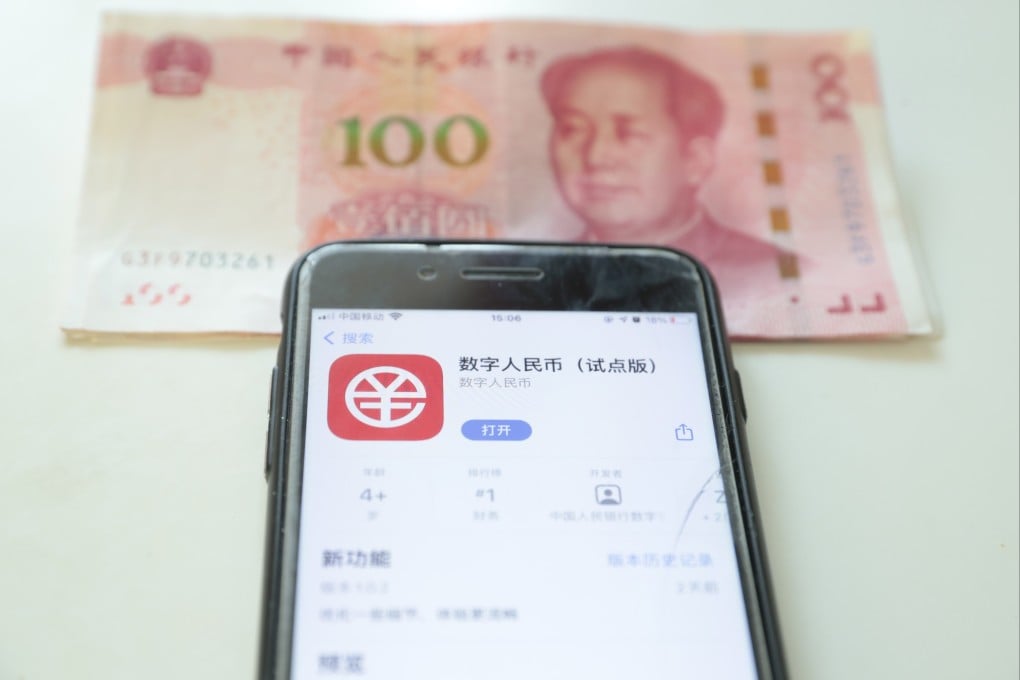China’s fully cashless society a step closer after two private banks end services for banknotes and coins
- Two private banks in Liaoning province and the capital of Beijing will no longer provide services involving banknotes and coins, effective March and April respectively
- Beijing has been conducting a nationwide pilot scheme for the e-yuan, with more than 261 million people downloading the wallet app

Two small private Chinese banks announced last month that they would no longer provide services involving banknotes or coins, in the latest sign that the country is accelerating its march towards a totally cashless society.
Zhongguancun Bank, which serves customers in the capital of Beijing, said it would suspend cash services, including over-the-counter deposits and withdrawals as well as cash services on ATM machines, starting from April.
Its decision comes after a similar move by another regional bank, NewUp Bank of Liaoning, in the northeastern province of Liaoning, which will stop cash services from March.
During the Lunar New Year holiday, many Chinese businesses have been expanding their capability to accommodate digital yuan. Tencent recently added e-yuan as a payment option to WeChat Pay while e-commerce giant JD.com now supports e-yuan payments for purchases made in its online stores.
At the same time, the suspension of cash services at banks have raised eyebrows in China, especially since the country’s central bank has repeatedly reminded ordinary merchants that they must accept banknotes and coins.
